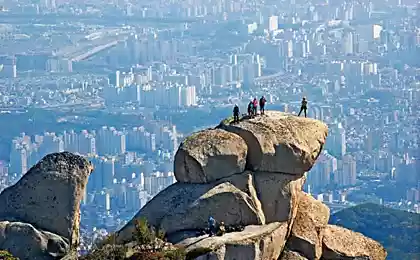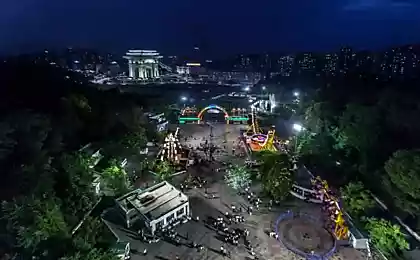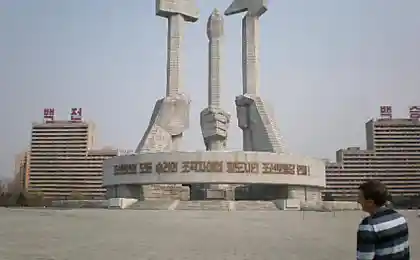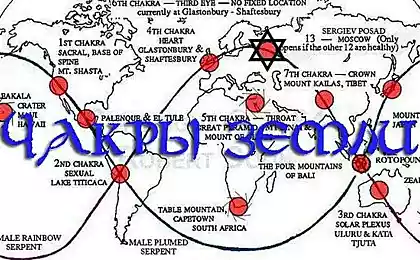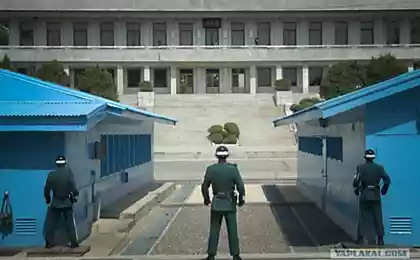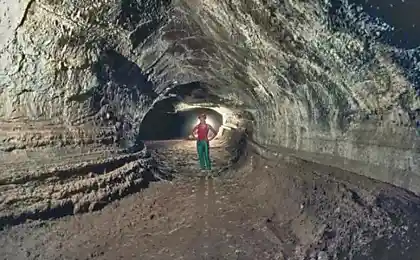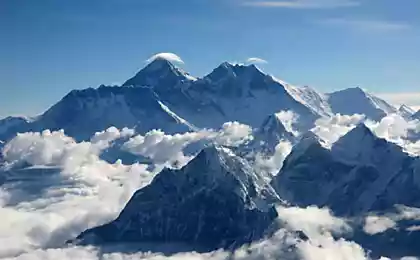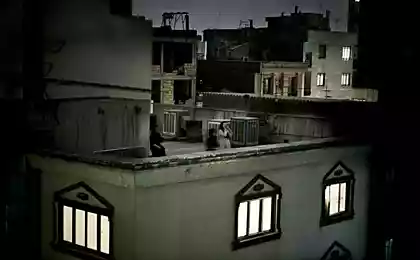519
Photo essay mount Bukhansan in Seoul
Bukhansan (Bukhansan) is a mountain located on the Northern outskirts of the capital of South Korea — Seoul. Being the highest point of the city and its environs with the index 836,5 meters above sea level, the peak is visible from many parts of the South Korean metropolis. In the era of the Joseon dynasty (1392-1897) mount Pukhansan served as the Northern border of the city.
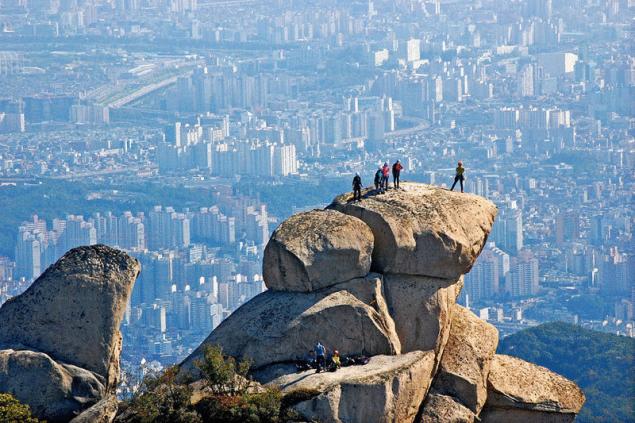
The highest mountain of Seoul consists of three vertices except the highest, reaching 836,5 meters, there are two peaks 810,5 and 799,5 meters. The first one you can climb without the aid of additional funds, but to conquer the second record holder will have to stock up on climbing equipment. It is a smooth, cone-shaped mountain, emerged from a wooded area a few tens of meters up. This peak is a popular place for the Seoul climbers.
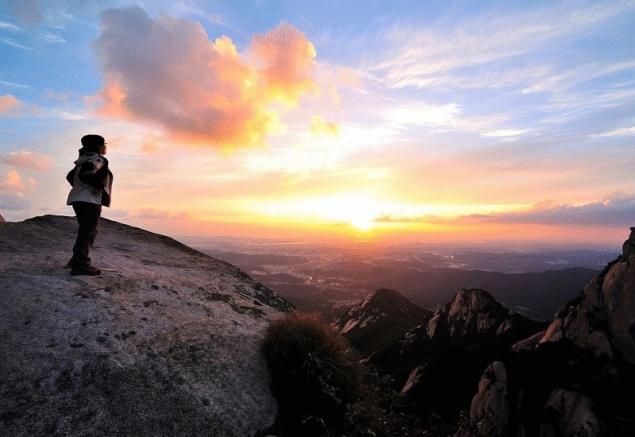
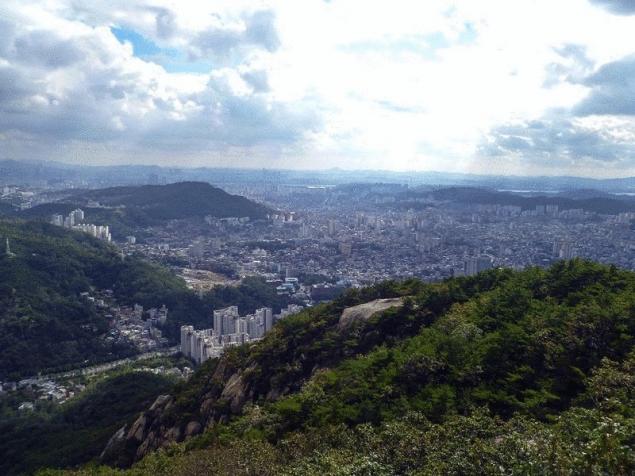
The name of the mountain – Pukhansan is directly related to its location and means "mountain in the North of Khan": it lies 10 km to the North of the Han river, which flows in the centre of Seoul. For many years three main peak of the massif are collectively called Pukhansan, but the original name of the trio of peaks sounds like Samgaksan (Samkaksan), meaning “three horned mountains”. The Central government plans to soon officially rename the mountain in Samgaksan.
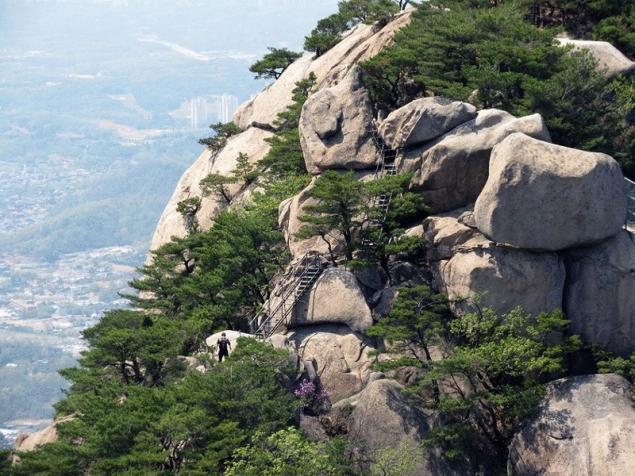
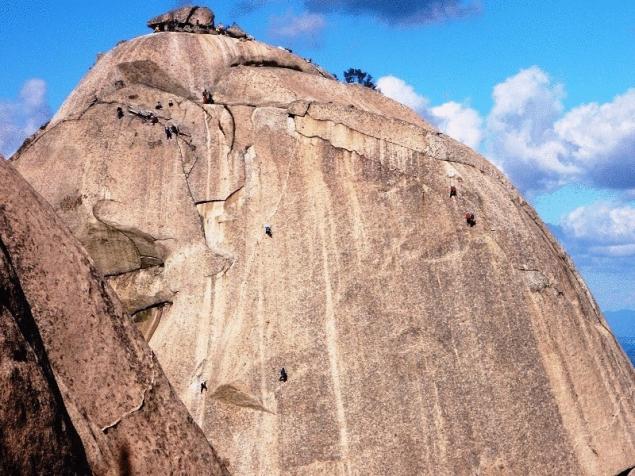
The ridge of Seoul mountains, formed about 170 million years ago, has a total length of 78,45 km and includes six areas. They have smooth curves – pointed granite peaks contrast with the very impressive gorges, valleys and dense trees.
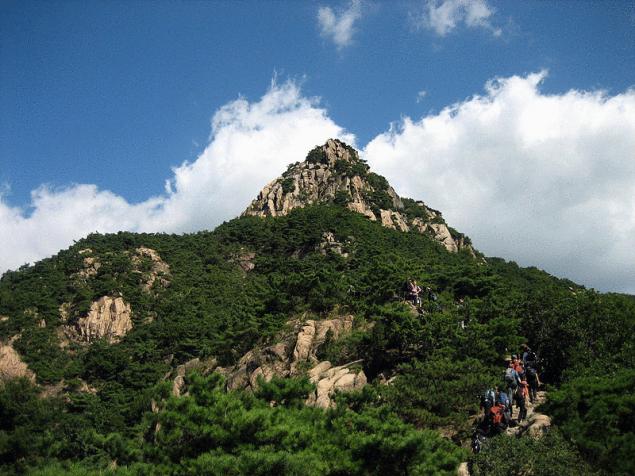
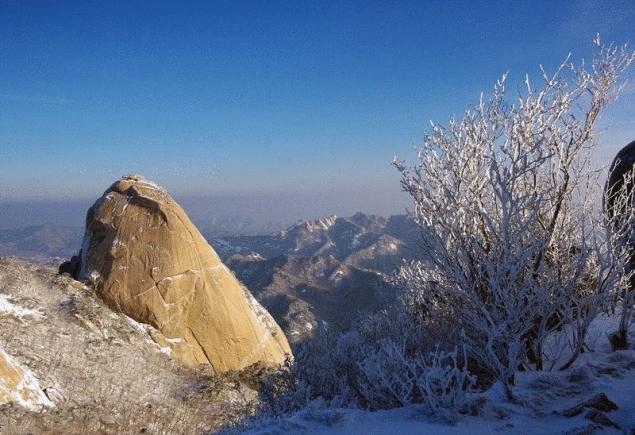
In 1983, the mountain Pukhansan became a part of the namesake national Park, which today enjoys great popularity among tourists from all over the world. A major attraction in the South Korean capital in the first place attractive for lovers of climbing, Hiking, and bird watching and animals. Attendance of this Park reaches record levels – about 5 million people a year, which allowed him to get into the Guinness Book of records as the national Park with the highest number of visitors per square foot.
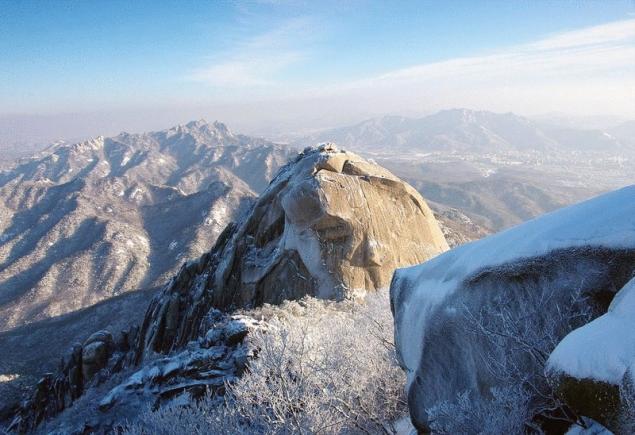
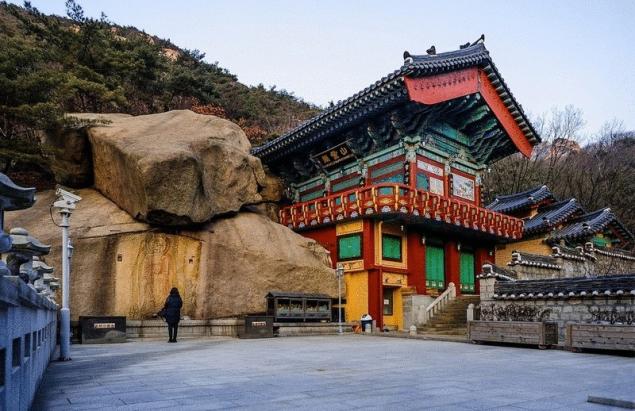
The mild climate here promotes the development of numerous species of flora and fauna (1300 species), including endemic species.
Hiking Pukhansan – a popular pastime in these parts. On the way to the top of people have to deal with a large number of steps, formed of stone. There is a belief that if we create a pyramid by putting stone on stone, that happiness is not to force yourself to wait long. That is why on the way there of such construction.
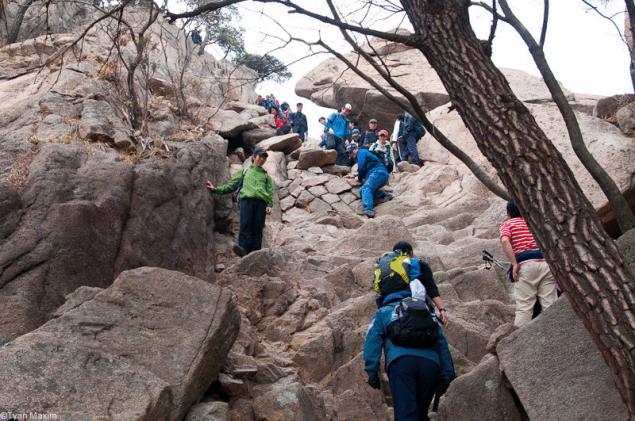
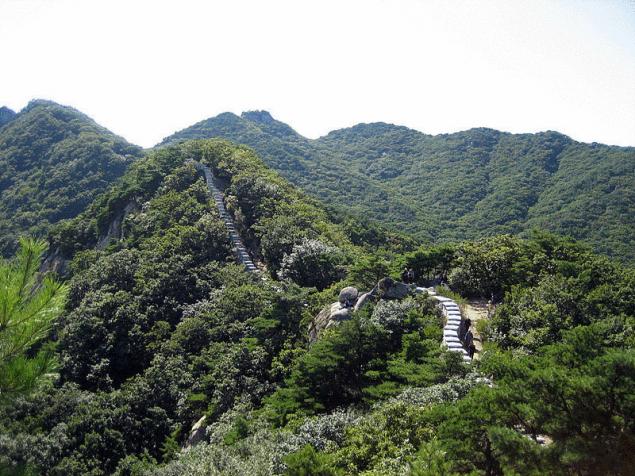
Adjacent to Pukhansan the territory is rich in cultural values: local open spaces you can see more than 100 temples, mountain fortress, particularly the fortress, having 8-500-foot wall, and other valuable monuments. On one of the peaks is Bukhansanseong fortress, built during the reign of king Suncube Chinchin, and along the mountain ranges stands a monk built the temple of Sangwonsa.
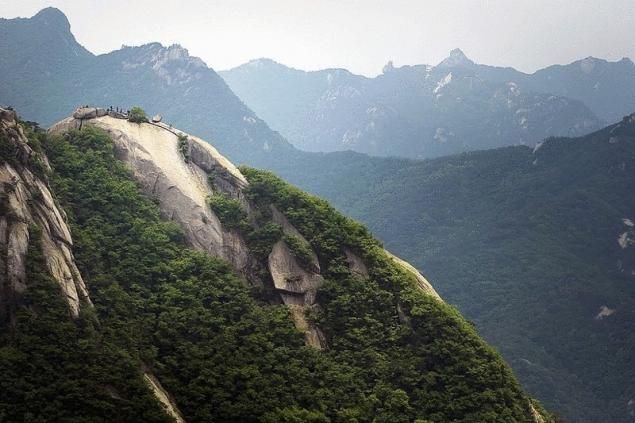
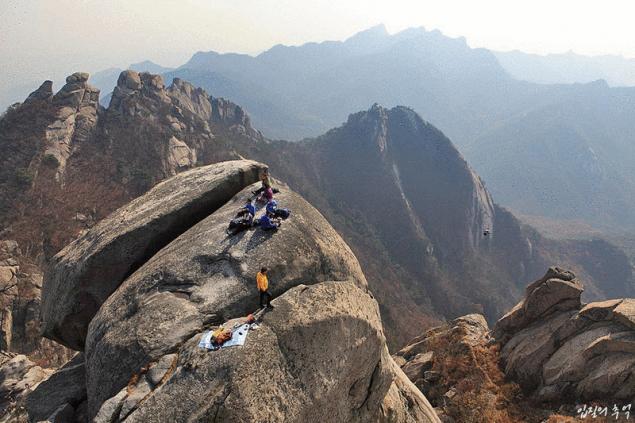
Granite mountain Pukhansan with their spectacular scenery and great attractions – an ideal place for walks at any time of the year. Spring covers the surrounding valleys with blooms of various plants. Summer quickens your breath dense forest and gorges. Especially nice on a warm summer day Hiking in the mountains along narrow paths along the gorges. Fiery red autumn paint the area with their warm colors. At this time it will be a good visit pavilions and temples. Snow-covered peaks rounded – picture of the landscape that cannot fail to inspire.
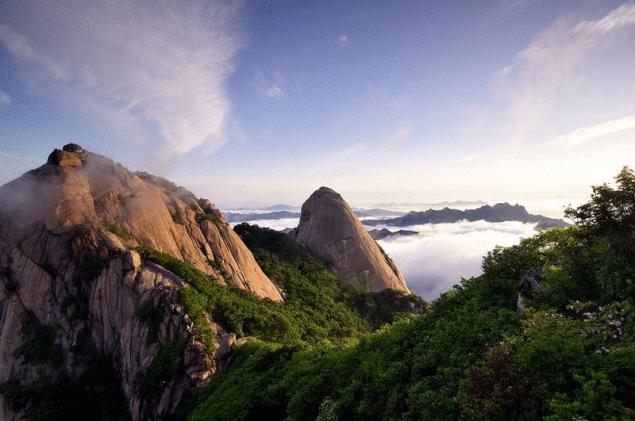
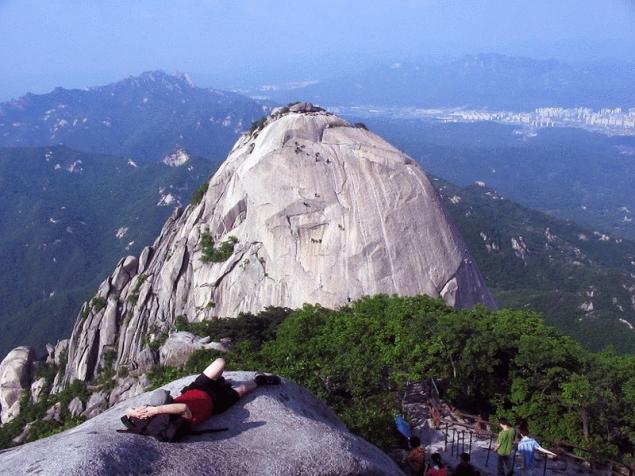
To get to the foot of the mountain can be arrived at the metro station "Dobongsan". The infrastructure of the surrounding area represented at the highest level – here you can buy everything you need for a hike, starting from food and ending with the professional equipment of well-known brands. Many tourists come to the foot of the mountain light, and hence, armed with all the necessary, already beginning his ascent. Before climbing optionally, you can put your name in the list, and after descending just to inform about their safety. Rescuers and other services actively ensure the comfort and safety of guests, give lectures and distribute the cards.
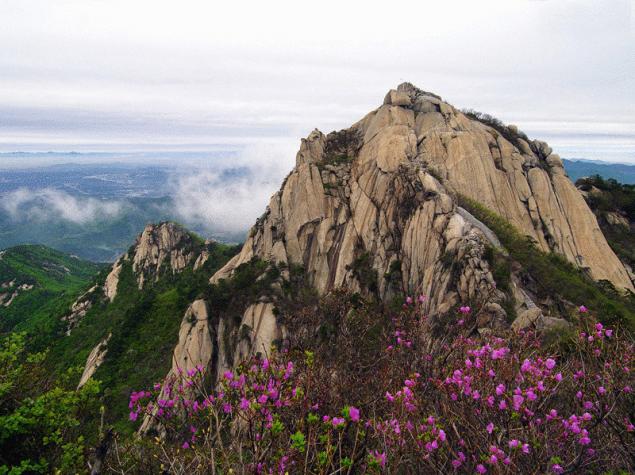
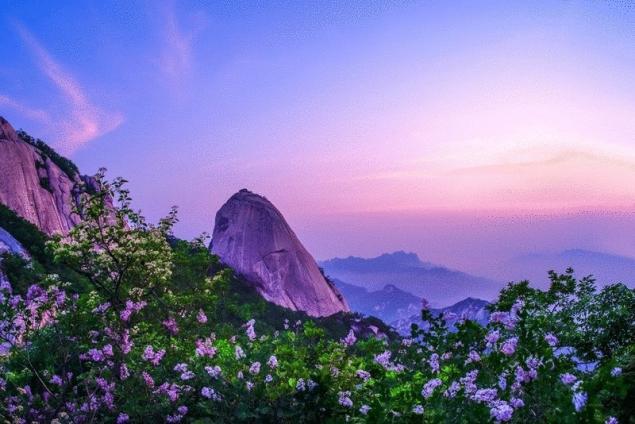
Close proximity to the city makes mountain Pukhansan very convenient to visit. The national Park every day of the week. The cost of admission varies depending on age of the visitor. Children will be able to admire the local beauty for 300 won, teenagers – for over 600, while adults 1,600 won.
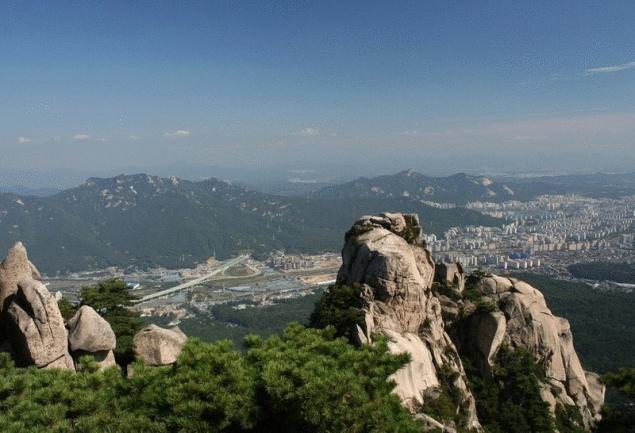
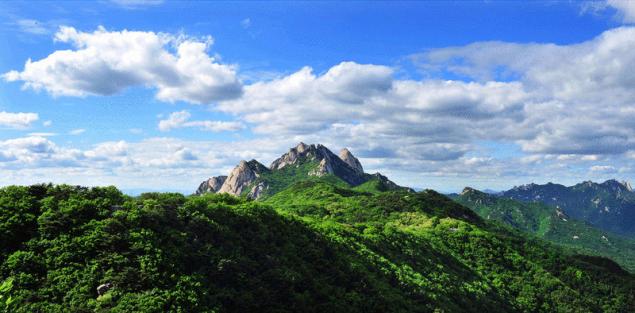
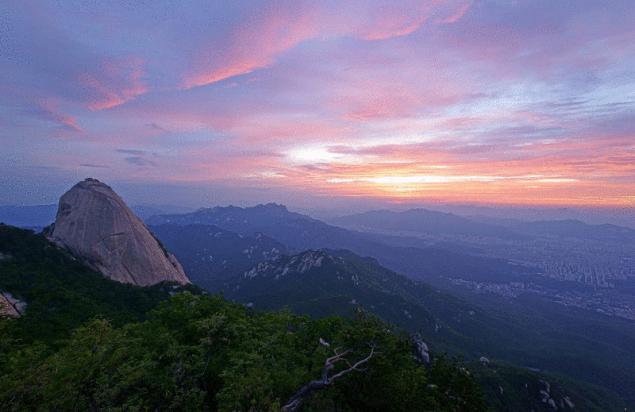
Source: udivitelno.com

The highest mountain of Seoul consists of three vertices except the highest, reaching 836,5 meters, there are two peaks 810,5 and 799,5 meters. The first one you can climb without the aid of additional funds, but to conquer the second record holder will have to stock up on climbing equipment. It is a smooth, cone-shaped mountain, emerged from a wooded area a few tens of meters up. This peak is a popular place for the Seoul climbers.


The name of the mountain – Pukhansan is directly related to its location and means "mountain in the North of Khan": it lies 10 km to the North of the Han river, which flows in the centre of Seoul. For many years three main peak of the massif are collectively called Pukhansan, but the original name of the trio of peaks sounds like Samgaksan (Samkaksan), meaning “three horned mountains”. The Central government plans to soon officially rename the mountain in Samgaksan.


The ridge of Seoul mountains, formed about 170 million years ago, has a total length of 78,45 km and includes six areas. They have smooth curves – pointed granite peaks contrast with the very impressive gorges, valleys and dense trees.


In 1983, the mountain Pukhansan became a part of the namesake national Park, which today enjoys great popularity among tourists from all over the world. A major attraction in the South Korean capital in the first place attractive for lovers of climbing, Hiking, and bird watching and animals. Attendance of this Park reaches record levels – about 5 million people a year, which allowed him to get into the Guinness Book of records as the national Park with the highest number of visitors per square foot.


The mild climate here promotes the development of numerous species of flora and fauna (1300 species), including endemic species.
Hiking Pukhansan – a popular pastime in these parts. On the way to the top of people have to deal with a large number of steps, formed of stone. There is a belief that if we create a pyramid by putting stone on stone, that happiness is not to force yourself to wait long. That is why on the way there of such construction.


Adjacent to Pukhansan the territory is rich in cultural values: local open spaces you can see more than 100 temples, mountain fortress, particularly the fortress, having 8-500-foot wall, and other valuable monuments. On one of the peaks is Bukhansanseong fortress, built during the reign of king Suncube Chinchin, and along the mountain ranges stands a monk built the temple of Sangwonsa.


Granite mountain Pukhansan with their spectacular scenery and great attractions – an ideal place for walks at any time of the year. Spring covers the surrounding valleys with blooms of various plants. Summer quickens your breath dense forest and gorges. Especially nice on a warm summer day Hiking in the mountains along narrow paths along the gorges. Fiery red autumn paint the area with their warm colors. At this time it will be a good visit pavilions and temples. Snow-covered peaks rounded – picture of the landscape that cannot fail to inspire.


To get to the foot of the mountain can be arrived at the metro station "Dobongsan". The infrastructure of the surrounding area represented at the highest level – here you can buy everything you need for a hike, starting from food and ending with the professional equipment of well-known brands. Many tourists come to the foot of the mountain light, and hence, armed with all the necessary, already beginning his ascent. Before climbing optionally, you can put your name in the list, and after descending just to inform about their safety. Rescuers and other services actively ensure the comfort and safety of guests, give lectures and distribute the cards.


Close proximity to the city makes mountain Pukhansan very convenient to visit. The national Park every day of the week. The cost of admission varies depending on age of the visitor. Children will be able to admire the local beauty for 300 won, teenagers – for over 600, while adults 1,600 won.



Source: udivitelno.com
Does wearing glasses affect the state of vision?
Reading books at an early age has a positive effect on intelligence

